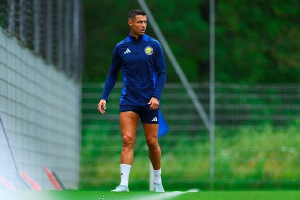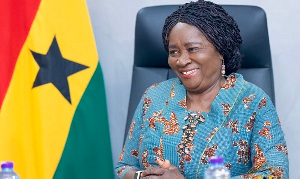WHEN SOMETIME last year President John Agyekum Kufuor admitted he had erred in criticizing the size of his predecessor's government, when he (Kufuor) was in opposition, Chronicle thought it a humbling admission of guilt that every public office holder should emulate when, as humans, they err and realize it. After lauding that confession because we considered it a rare occurrence in African politics, we encourage Mr. Kufuor to split the biggest of his ministries, but with utmost circumspection.
But today, even the most ardent supporter of the government party - the New Patriotic Party - cannot fail to recognize that Mr. Kufuor's government is growing too big and unwieldy. Some 79 Cabinet, non-cabinet, and deputy ministers for a country with the geographical and population size of Ghana are too many. No wonder such a respectable, independent organization as the Centre for Democratic Development (CDD) has roundly criticized the recent increase in the number of the ministerial team.
In fact, the CDD believes that less than 50 people working as ministers should be able to amply assist any president of the republic to administer. In addition to the 79 ministers and deputies, there are scores of 'special assistants' appointed by departmental and regional ministers and, in a few cases, even district chief executives. Evidence gathered strongly suggests that quite a number of these 'special assistants' are relatives and friends of the ministers, called to share the comfort being enjoyed by their friends in political office. Not many of those assistants are more competent than the top level civil servants trained and placed at the disposal of the politicians under clearly defined constitutional provisions.
In view of the obvious waste of national resources, clash of ideas between ministers in the same department, special assistants and co-ordinating directors, the Chronicle would rather suggest the president reduced the size of his ministerial team at his earliest convenience. The paper suggests that the president takes a closer look at how the ministries are functioning and merge a few in the near future. Or at least reduce the number of people working at such places as the Ministry of Education, Youth and Sports.
The issue of special assistants should also be reconsidered critically. All but the most special of them must be relieved of their posts to find some jobs to do. Where there is the real need for the appointment of a special assistant, it should be possible for government to explain to the general public the compelling reasons. The practice of leaving the decision to appoint assistants or not, entirely to ministers must be stopped.
In fact, we suggest that Parliament takes steps to decide on the maximum number of ministers any president at any given time can appoint. The fact that some countries have over 200 ministers does not necessarily justify our maintaining a number of ministers we do not need. If comparisons are anything to go by, then it must be remembered that some much bigger countries such as Canada, have a smaller number of ministers than Ghana has.
While the electorate and taxpayers of this country wait for downsizing of the government in the near future, Chronicle considers it extremely important that all appointees currently in office make judicious use of resources placed at their disposal. Tension and bickerings that are reported to be erupting between some deputies and the superiors of late, must also stop.














